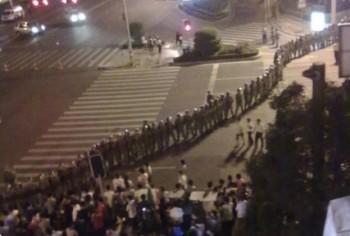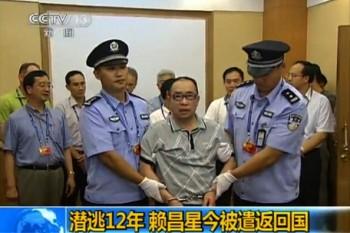Shandong Province has always been a major source of China’s soldiers—up to 10 percent of new recruits each year—but not in 2010.
Tan Wenhu, former military Commander General of Shandong Province believes that one major contributing factor is that businesses and the military are competing for limited manpower.
Tan recently spoke at China’s National People’s Congress and said that the reasons for recruitment shortages are: lowered birth rates, labor shortage in different areas in 2010, the public’s lack of awareness of national defense, and many parents’ unwillingness to send their children to suffer hardship in the army, the state-run China National Radio reported on March 15.
One major reason for the shortfall is veterans’ low subsistence allowance. Tan explained that Shandong’s urban workers earned an average of 30,000 yuan (US$4,569) in 2009, while the per capita net income of farmers was 6,119 yuan (US$932); but the annual subsistence allowance for a veteran soldier is only about 3,000 yuan (US$457).
Many veterans in rural areas of Shandong Province don’t even receive 3,000 yuan in subsistence allowance every year, Radio Free Asia (RFA) reported on March 19, quoting Cui Shaohua, a veteran from Yantai, Shandong Province.
Cui said that after spending 18 years in the military he is now penniless, without health insurance, social security or a minimum living standard. “I am now worse off than farmers,” he told RFA.
Tan says that the authorities need to improve their regulations and guarantee veterans’ welfare. The central government should be in charge of soldiers’ subsistence allowance in order to eliminate the discrepancies in allowances between urban and rural areas.
Many veterans all over China have been petitioning for their social welfare, mostly due to problems in demobilization benefits and the huge differences in implementation of benefits in different areas. The central government’s policies for demobilized soldiers were not fully carried out in local areas, Cui told RFA.
There is a huge difference between how the Chinese regime treats enlisted soldiers and demobilized soldiers, according to the RFA report, quoting Liu Qing, a human rights activist in New York.
Liu said that the regime’s military spending is very high and it has continued to boost soldiers’ pay; it recently announced that soldiers and officers will receive up to 40 percent pay raise.
“The Chinese regime is doing this to buy the soldiers’ loyalty,” he said, “But what the regime wants to buy are the enlisted soldiers, not the veterans. So the veterans are in a miserable situation.”
[email protected]
Tan Wenhu, former military Commander General of Shandong Province believes that one major contributing factor is that businesses and the military are competing for limited manpower.
Tan recently spoke at China’s National People’s Congress and said that the reasons for recruitment shortages are: lowered birth rates, labor shortage in different areas in 2010, the public’s lack of awareness of national defense, and many parents’ unwillingness to send their children to suffer hardship in the army, the state-run China National Radio reported on March 15.
One major reason for the shortfall is veterans’ low subsistence allowance. Tan explained that Shandong’s urban workers earned an average of 30,000 yuan (US$4,569) in 2009, while the per capita net income of farmers was 6,119 yuan (US$932); but the annual subsistence allowance for a veteran soldier is only about 3,000 yuan (US$457).
Many veterans in rural areas of Shandong Province don’t even receive 3,000 yuan in subsistence allowance every year, Radio Free Asia (RFA) reported on March 19, quoting Cui Shaohua, a veteran from Yantai, Shandong Province.
Cui said that after spending 18 years in the military he is now penniless, without health insurance, social security or a minimum living standard. “I am now worse off than farmers,” he told RFA.
Tan says that the authorities need to improve their regulations and guarantee veterans’ welfare. The central government should be in charge of soldiers’ subsistence allowance in order to eliminate the discrepancies in allowances between urban and rural areas.
Many veterans all over China have been petitioning for their social welfare, mostly due to problems in demobilization benefits and the huge differences in implementation of benefits in different areas. The central government’s policies for demobilized soldiers were not fully carried out in local areas, Cui told RFA.
There is a huge difference between how the Chinese regime treats enlisted soldiers and demobilized soldiers, according to the RFA report, quoting Liu Qing, a human rights activist in New York.
Liu said that the regime’s military spending is very high and it has continued to boost soldiers’ pay; it recently announced that soldiers and officers will receive up to 40 percent pay raise.
“The Chinese regime is doing this to buy the soldiers’ loyalty,” he said, “But what the regime wants to buy are the enlisted soldiers, not the veterans. So the veterans are in a miserable situation.”
[email protected]



